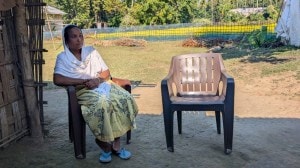We the people like us
Such is our obsession with law and legislation, and so touching our faith in these, that if we had our way we would pass laws to solve al...

Such is our obsession with law and legislation, and so touching our faith in these, that if we had our way we would pass laws to solve all our problems, including droughts and floods, plagues and pestilence. The direction the current debate on Sonia Gandhi8217;s claims to prime ministership has taken is entirely consistent with this legalistic fixation.
Her supporters say no questions can be raised about her credentials since the Constitution places no bars on a naturalised Indian holding any high office in India. If that is the case, her detractors say, let us amend the Constitution. Both are wrong.
Individual-specific legislation and disfranchisement have never worked in the long run in any democracy. The senior Mrs Bandaranaike made a resounding comeback, her daughter Chandrika is in the driving seat now. Nawaz Sharif8217;s effort to similarly bar Benazir is bound to meet the same fate. What both 8212; Sonia8217;s apologists and enemies 8212; fail to appreciate is that governing India is more complex than merely winningan election. This is where Sonia8217;s foreign origin will become a real liability.
Legally and constitutionally, Sonia8217;s supporters cannot be faulted. Morally, or politically, they argue, her Italian origin may be an issue in your drawing rooms, but how does that matter when the voting classes don8217;t care? The sub-text is, only the urban, particularly upper and middle classes, have a problem with her origin and in the electoral arithmetic they count for nothing. This is silly and simplistic, if not downright cynical and self-serving.
They may be right in presuming that the rural, poor, under-developed Indians, or the voting classes, are willing to accept a foreign bahu as their own. But they fail to understand the power of the middle class now, despite all the qualifications 8212; urban, caste Hindu, etc 8212; that they so dismissively employ.
India has changed a great deal, and middle class India has gr-own a great deal, both in terms of its power and spread, from the days when the senior, and the moreillustrious Mrs Ga-ndhi, employed the same argument to demolish the opposition and her own party8217;s old guard in 1969. The massive proliferation of 8212; mostly brazenly unauthorised 8212; jhuggi jhompri colonies around Delhi took place during that phase as she set ab-out teaching the hated urban elites a lesson. These were her vote banks, and also her muscle power during periods of crisis. It is no coincidence then th-at most of these, particularly the illegal ones, are named after her, or either of her sons.
But she had an advantage. If she could still govern reasonably effectively it was because the size and the re-ach of the urban elites who constituted the establishment were rather small. The bureaucracy saw no real chance of another power centre emerging in the political system, so it had no option but to fall in line. The judiciary, the services brass, the media and big business, until that point, did not quite have their roots in the middle class. They were the elite, a small, tightly knit, incestuousgroup that made a neat compact with her, until the Allahabad High Court judgment and the Emergency. The senior Mrs Gandhi knew her small establishment elites and kept them secure and happy.
Now that universe has enlarged considerably. It has also become more politicised and exposed to options, like Atal Behari Vajpyaee8217;s BJP which feels so mu-ch more like a government of People Like Us than Sonia8217;s Congress and certainly some Yadav8217;s third front.
More significantly, in post-Mandal India, the urban middle class is more conscious of the old Bharat versus India divide and resents the idea that some people, who they credit with lesser intellect and education, can decide who rules the country. The sharp, violent reaction to Mandal, the hatred for V. P. Singh, and the increasingly strong anti-politician sentiment are the urban middle class8217;s way of saying that if today8217;s politics produces leaders like these, we abhor this politics.
How many times in conversations, not just in your drawing room and mine, andin the executive class cabins of Jet Airways, but also in suburban trains and buses, within your own workplaces and high teas, have you heard the expression 8220;people like Laloo and Mulayam,8221; said with such contempt? Politics, this class thinks, produces leaders like these. Vajpayee gives them comfort. Under him, they feel, even the more negative aspects of the BJP remain in control though, as indicated by voting patterns in urban areas and more urbanised states like Gujarat, the middle classes are by no means votaries of aggressive secularism. They hate the Muslims, they don8217;t particularly love the Christians and they detest the thought that these minorities, along with the 8220;illiterate, lower caste types8221; could elect to power leaders who do not have their endorsement. How likely is this class to willingly accept, and cooperate with, a Sonia Gandhi installed only by the voting classes?
I have to confess it is a perverse argument, but you cannot run away from the fact that today, it is impossible to governIndia without the goodwill of the urban middle class. A succession of former prime ministers could tell Sonia Gandhi that. The middle class does not like the third front, and for good reason, as that grouping was genetically constructed to be anti-elitist and anti-urban. So it retaliated by making life impossible for both H.D. Deve Gowda and Inder Gujral. Gujral, our most urbane and elitist prime minister since Nehru, must have committed a genuinely serious crime to score a mere 2 per cent, the lowest for all prime ministerial candidates, in a recent nationwide opinion poll.
His crime was betrayal, that of leading a third front government. His bureaucracy rebelled when he tried to make peace with Pakistan. The same babus now applaud Vajpayee for doing exactly the same thing. His generals screamed blue murder when his OBC defence minister promoted a country cousin out of turn. Finally, we were told, the scourge of casteism and cronyism was descending on the armed forces. Today the same generals merrilyanoint the same gentleman in an even higher position.
As all opinion polls, Internet polls, and other indicators of urban public opinion show, the middle classes have bought the argument that a foreign-born cannot be the prime minister of their nation. They will buy foreign goods, seek MNC jobs, send their children to work abroad, salute the FIIs for sustaining the Sensex. But if they have decided they won8217;t be ruled by an Italian-born, they will not be swayed by the logic of numbers. Sonia, even if she were to get elected, will be a no-hope prime minister from day one as this entire, formidable system will work against her. It is this, much more than the BJP8217;s threat to amend the Constitution or her own rebels8217; threats, that should persuade her to seek a different goal in her party8217;s history than the prime ministership of India, even if it is 8220;dearer to me than my own life8221;.
- 01
- 02
- 03
- 04
- 05






























